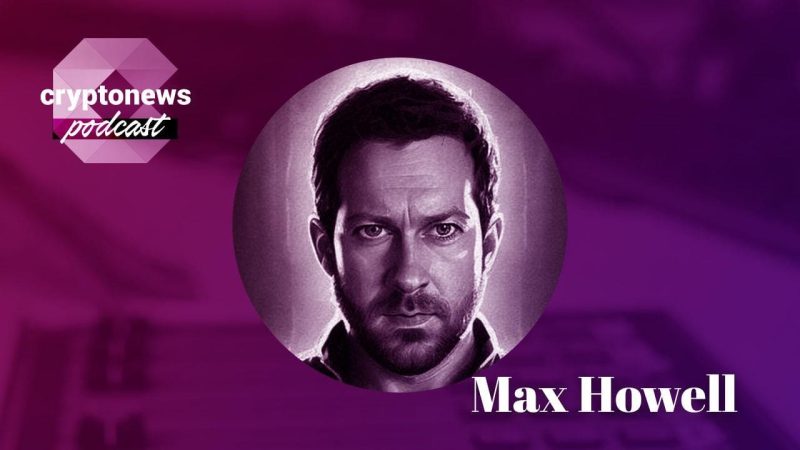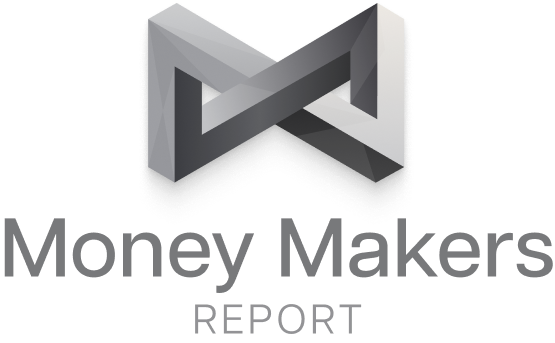
Max Howell, Founder of Tea Protocol, on Unlocking the Open-Source Economy, Measuring the Impact of Blockchains, AI, and Incentivizing Developers | Ep. 319
Max Howell, the founder of the decentralized technology protocol tea Protocol, sat down for a chat with Cryptonews’ Matt Zahab, to discuss his highly popular Homebrew system, as well as the much-anticipated tea Protocol.
He talked about the massive importance of properly compensating developers to create and maintain open-source software so they can work on it full-time, and how tea aims to help that goal.
The famous developer also touched upon commercial open-source, the impossible attempt to merge open-source and capitalism, and what open-source is in its essence.
In this episode, Howell discussed:
compensating developers to create open-source software;
90% of all publicly traded companies utilizing open-source software across their business units;
relationship between open-source software and capitalism;
the emergence of commercial open-source;
open-source vs. closed-source AI.
You can watch the full podcast episode above or read what Howell told Matt below.
The First Big Success
Howell achieved quite a feat early in life.
He told Cryptonews that in the mid-2000s, online music service Last.fm offered him a job.
It was while he was there that he wrote Homebrew in 2009, a free and open-source software package management system that simplifies the installation of software on macOS and Linux. Tens of millions of developers around the world use it.
At Last.fm, the team was using Mac. But at that time, the state of the developer tooling was lacking.
“I came from a Linux background where I was used to all these awesome package managers that had amazing feature sets and worked really well,” Howell said.
So, after complaining about it at the pub after work, he decided to “do something about it.”
Three months later, he open-sourced his product on GitHub. Interestingly, nobody noticed it for a while, so he started “doing some self-evangelism.”
“One day, I woke up and found that I had a bunch of people interacting with my code,” Howell said.
Homebrew has become “a massive success” and quickly. But this created a different career problem. The then 26-year-old Howell thought that everything should move like Homebrew did or he should give it up.
In 2021 I was once again between paid work and wanting to work on Open Source fulltime. I looked at what was there and decided it couldn’t realize my dream. One evening I realized that I could wait forever for some one else to make my dream true—or I could fix it myself. So I…
— Max Howell (@mxcl) March 19, 2024
When Homebrew became “extremely popular,” the developer was able to leave his job and work on the product full-time.
This eventually led him to create tea Protocol, a decentralized technology protocol that enables open source developers to be rewarded for their software contributions.
Open-Source Software and Capitalism
It’s been 15 years since Howell created Homebrew. For most of his career, he’d take up jobs to earn and save money so he could quit and work on open source.
He stated tgat “there’s something really wonderful about working on open source. And there’s nothing else that compares in the corporate world.”
However, the major problem with it is that there’s no way to work on it full-time in a capitalist society.
And while Howell has no issue with capitalism per se, “it really doesn’t map onto open source at all.”
There are people doing “commercial open source” nowadays, but it’s not really open source per some of the usual metrics. The main purpose of open source is to solve a problem that is very specific and often unrelated to revenue models.
Therefore, people have tried to come up with solutions so that some of the open source developers and maintainers can work on it full-time.
Web2 was built on Open Source. I created Homebrew, used by almost every web2 company… yet the most compensation I ever received was a (literal) “thank you for Homebrew” blanket from Google one cold winter.
PromiseKit, another project I created, was once used by over 100,000…
— Max Howell (@mxcl) January 23, 2024
Notably, not many realize how important this is. People need to be paid for maintaining such widely used systems.
“People building in Web2 realized that open source was the way to bootstrap entire businesses,” Max Howell said, adding:
“You could build 95% of your product using freely available open source solutions that are performing and well-maintained and perfectly solved the niche they were trying to solve. Then do 5% of your code as the proprietary bit on the top and make fortunes.”
Furthermore, some 70% of enterprise software is built on top of open source, he said.
And this is not an issue on its own. The open-source tools are there to be used. But the fact remains that somebody still needs to properly maintain the solutions on which 95% of products are based.
There is Money, But Very Little Goes to Developers
Open source is everywhere now. It’s “been to Mars, it’s on the bottom of the ocean, it’s in every computer, every phone,” Howell said.
There is “a lot of money” in the software and the internet realms, “but very little of it has ended up trickling back to these people that are maintaining these core pieces of infrastructure.”
And you regularly hear about people burning out and rage quitting, he added.
“What’s happened as a result of trying to shove capitalism on to open source is you’ve ended up with people treating it like a charity, where the only thing they can expect is the goodness of people’s hearts to throw them five bucks so they can buy a coffee,” said Howell.
Developers earning from donations, Patreon, or GitHub sponsors do not receive much either. Upon speaking to many prominent developers, Howell found that the top-earning person makes $24,000 a year. And this man worked on very popular packages.
TEA is stepping up to spotlight these contributors. We’ve noticed a gap—a big one—between the immense value open-source developers bring and the recognition they receive. It’s time for a change!
— tea Protocol (@teaprotocol) March 19, 2024
A couple of years ago, Howell was looking once again for something fresh in the space in terms of working on open source full-time. He wasn’t able to find anything that would ensure that.
“So in a moment of inspiration, I realized that maybe the person who was going to solve the problem had to be me.”
He started exploring technologies he hadn’t looked at before and realized that there was an opportunity with blockchain, smart contracts, and cryptocurrencies.
These could be tools to create something new open source that doesn’t fit onto a standard capitalist model.
While commercial open source introduces agendas in order to find a revenue model, Howell aimed to build a system that “recognized what is open source, why it works, and then didn’t change anything about that.”
The only thing the system needed to do is fix the problem of providing sufficient rewards.
Max Howell approached some crypto venture capitalists in 2022 and subsequently raised 17 million for tea Protocol, with Binance Labs as the lead investor.
10.5 Million Projects Over Multiple Decades Ranked
Tea Protocol revealed its Incentivized Testnet on February 21. It plans to launch the mainnet on June 12.
Commenting on how and which developers get incentivized on tea, Howell explained that there is a system called Proof of Contribution.
It’s a novel consensus mechanism designed to quantify the impact of all projects across all open-source ecosystems.
An oracle ranks all 10.5 million projects created over the past 20-30 years and assigns them a teaRank between zero and a hundred. “Everything above a teaRank of 25 is going to get automatic rewards if they onboard to our system,” Howell said.
In the three weeks since the testnet launch (between the launch date and the podcast recording), tea saw more than 5,000 open-source projects onboard. And the onboarding process is intentionally made simple.
Max Howell told the viewers that “we’ve had over half a million people sign up at this point. And as a result, we have over half a million wallets created on the tea Protocol, and so far, 89% of them are active on the protocol as well.”
We crossed 400,000 sign-ups to @teaprotocol this morning—we’ve been live less than 3 weeks.
tea Protocol’s mission is to reward Open Source developers for their invaluable contributions to all modern digital infrastructure.
Sign up! https://t.co/WuFqvGLWO0
— Max Howell (@mxcl) March 9, 2024
The goal is to enable developers to work on open source projects more, and if possible even full-time.
When it comes to tokenomics, the gas fees are paid with TEA tokens. Paymasters facilitates that.
There is also staking, allowing people to “find a project that you think is interesting, […] put some token down, and then earn rewards off of the project.”
Therefore, the project is shifting the view of open source from charity to “an incredibly valuable ecosystem that props up the whole internet.”
Incentivizing Open Source Security
Another relevant aspect, the developer said, is that until now the incentives for open source to keep their technologies secure just weren’t quite there.
What tea is doing is incentivizing whitehats to report any security vulnerabilities they find in a confidential manner via the smart contracts available on the protocols.
If that vulnerability is legitimate, the project must fix it within a certain amount of time. Otherwise, they risk a slashing event where people staking against that project are also slashed.
‘Proof of Contribution’ is tea’s secret sauce, accurately rewarding projects based on their impact. Being built on Base ensures a fair, transparent reward system.
— tea Protocol (@teaprotocol) March 4, 2024
Notably, many projects are severely underfunded. Often those who need funds the most get the least.
However, tea wanted to introduce an incentive for the open-source maintainers to keep their projects secure.
“I feel that what we’re building here is for open source and run by the open source community,” Howell said. “So governance-wise, open source maintainers are gonna have the most clout. And longer-term, I’m hoping that the governance committee of the tea Protocol itself will be entirely staffed by leaders in the open source space. So we’re going to be courting them actively over the next couple of years,” he concluded.
__________
About Max Howell
Max Howell is the founder of tea Protocol, a decentralized technology protocol that enables open-source developers to be adequately rewarded and compensated for their software contributions.
Howell previously founded Homebrew, a free and open-source package management system that simplifies the installation of software on macOS and Linux.
Since its founding in 2009, Homebrew has become one of the most widely used open-source projects of all time.
He has also served as a Senior Xcode Developer at Apple and as the Chief Product Officer at MyHealthily, an open-source healthcare technology platform.
Howell remains a frequent open-source software developer and contributor.
The post Max Howell, Founder of Tea Protocol, on Unlocking the Open-Source Economy, Measuring the Impact of Blockchains, AI, and Incentivizing Developers | Ep. 319 appeared first on Cryptonews.
